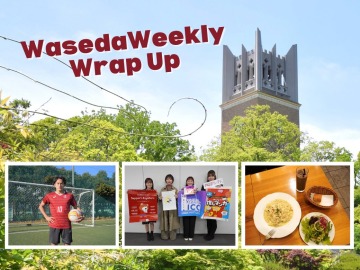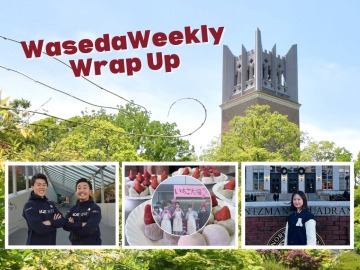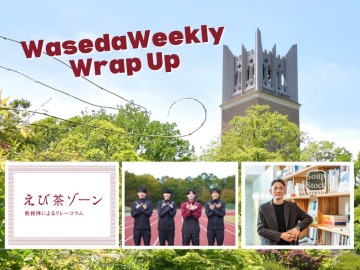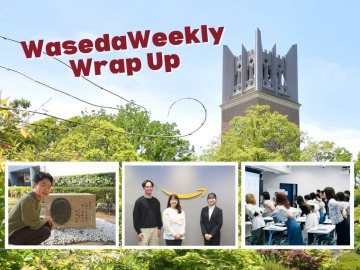Waseda Rugby athletes get fired up for upcoming “Sokeisen” & Meiji U match!
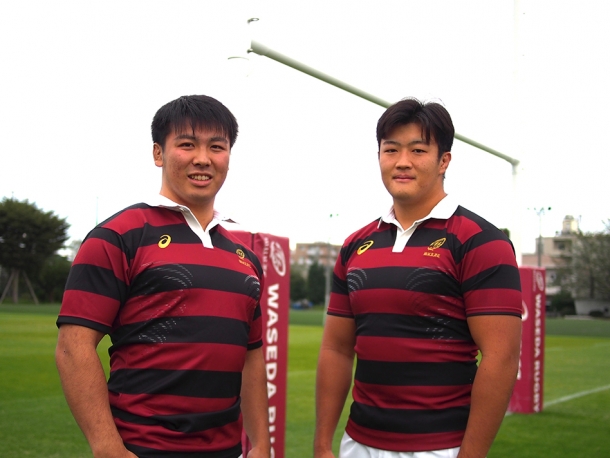
*This article was published before the matches took place.
Waseda University is about to celebrate 100 years of “Sokeisen” (早慶戦), a term which represents the sports rivalry between teams from Waseda and Keio University. Waseda’s rugby matches against Keio on Nov. 23 and Meiji University on Dec. 4, Waseda Weekly interviewed two current players for the Waseda University Rugby Football Club, Masahiko Sagara (4th year School of Social Sciences undergraduate, team captain and number 8 position player) and Tomoki Maeda (4th year School of Social Sciences undergraduate and lock/flanker position player).
When asked about the team’s slogan for this year, “Tough Choice,” Masahiko explains that the sprinting needed to swap from running forward to assist a try, to hastily falling back to stop the opposing team from scoring a try, is extremely demanding. In a situation like this, he wants the team to be able to execute this tough choice. Tomoki describes his position as lock and flanker as physically demanding, and the role of needing to physically clash with opposing players instills in him a desire to battle at all costs. We wish Masahiko, Tomoki, and the team success in their upcoming matches!
Japanese article: https://www.waseda.jp/inst/weekly/news/2022/11/14/102172/
A student’s enthusiasm for modern Senryu leads to making waves in the field
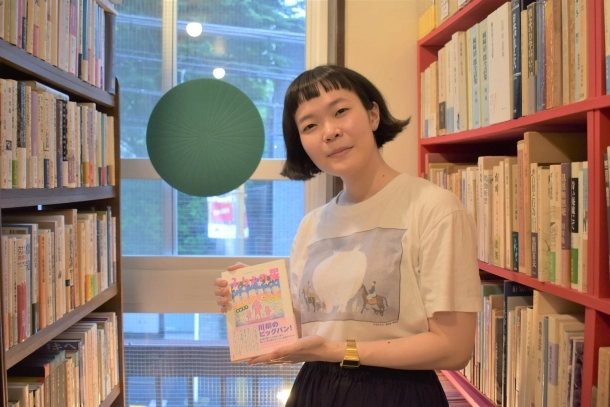
Senryu is a type of short-form Japanese poetry, similar to haiku, and Mana Kureda first came into contact with the literary art form at a book fair when she was a 2nd year undergraduate student at Waseda. Now, as a 3rd year masters student of the Graduate School of Letters, Arts and Sciences, Mana does research on this form of poetry, has published a collection of her own Senryu poetry, and oversees online Senryu projects such as a blogging site and educational lectures for beginners.
After publishing collections of her own Senryu poems in 2019 and 2021, she went through around 800 of her self-penned poems and chose 250 for her “best” edition, published April of this year. Mana comments, “People who compose Senryu poetry place a great deal of importance on performing at poetry gatherings, but there isn’t really a culture of recording poems into the form of a book.” Mana wants to continue her research and activities to help spread the joy of Senryu further, and she dreams of a day where one can walk into a bookstore and see shelves lined with Senryu poetry collections!
Japanese article: https://www.waseda.jp/inst/weekly/news/2022/11/15/99671/
Downtime for Associate Professor Azuaje-Alamo: American history reads and motorcycle rides
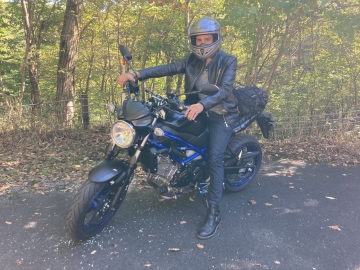
Manuel Azuaje-Alamo, an associate professor at Waseda’s Faculty of Letters, Arts and Sciences, School of Culture, Media and Society, talks to Waseda Weekly about some of his hobbies and how he spends his downtime here in Japan. A fervent reader of literature from a young age, Prof. Azuaje-Alamo has recently been making his way through the history of U.S. presidents. He comments on how interesting it is to see how the country’s culture and its peoples’ way of life change with each president.
Furthermore, in this era of Covid-19, Prof. Azuaje-Alamo has been donning a different kind of mask in addition to woven ones: a motorcycle helmet! He’s been exploring Japan’s scenic nature on his motorcycle, doing both day trips and overnight stays to places like the Izu Peninsula, Hakone, Karuizawa, and Chichibu.
Japanese article: https://www.waseda.jp/inst/weekly/news/2022/11/17/102122/
How the SAFE Project is saving student athlete lives
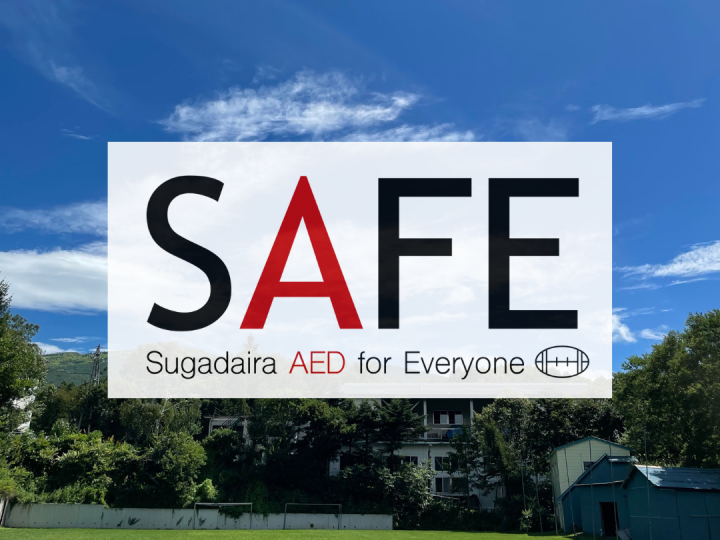
Injuries and sudden death in competitive sports is a serious risk that athletes face. Associate Professor Yuri Hosokawa (Faculty of Sport Sciences, School of Sport and Sciences), explains that the top three causes of sports related deaths are acute cardiac arrest, head injuries, and exertional heat stroke, and these three alone account for 80% of all causes.
Many high-school and university students gather at Sugadaira Kogen Highlands in the summer, an area in Nagano famous for its 105 rugby fields and sports events. At places like Sugadaira, there is a need for proper supervision and immediate response if an athlete goes into cardiac arrest. The SAFE Project, which stands for “Sugadaira AED for Everyone,” is a collaborative effort by multiple sports safety committees, prefectural organizations, and university sport science centers, including Waseda and Prof. Hosokawa’s participation, which aims to spread the proper use of automated external defibrillators (AED). For cardiac arrest, one minute could mean the difference between life and death, and this project strives to equip sports facilities and teams with ample AEDs and preemptive planning for their use.
Japanese article: https://www.waseda.jp/inst/weekly/news/2022/11/18/102401/

